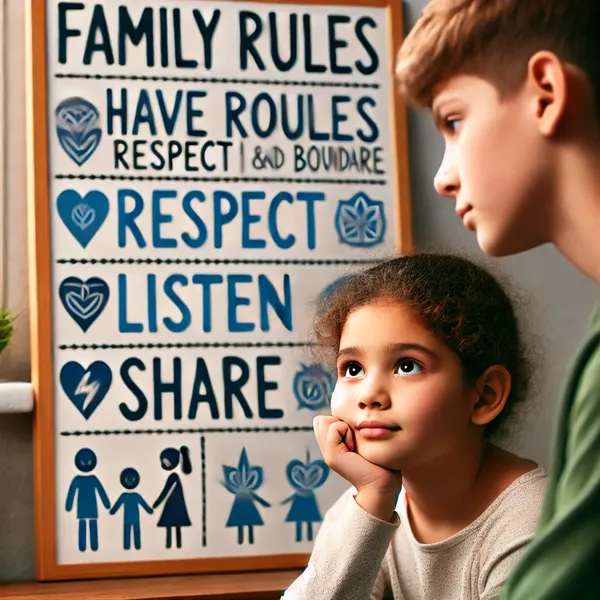How do we deal with sibling rivalry? Dealing with sibling rivalry can be extremely difficult for parents, especially if the arguing and tension never end. However, managing sibling rivalry can be easy. In this blog post, we will look at some basic steps to keep your infants together trouble-free.
What is Sibling Rivalry?
Sibling rivalry occurs between brothers and sisters who seek to attain the most attention, resources, or a better position in achievements.
It can manifest as bickering, banter, or jealousy. All families experience sibling rivalry, a normal, healthy phenomenon.
However, by understanding its roots and implementing best-managed techniques, you can control it or diminish its severity.
Why does sibling rivalry occur?
Now, there can be several reasons for doing that, and some of those are listed below:
- Struggles with Attention: All kids clamor for their parents’ admiration. If they feel that another sibling is getting more attention, this can result in jealousy.
- Individual Differences: Every child will become an adult with their likes, dislikes, and needs. That lack of commonality, though, can cause misunderstandings.
- Developmental Stages: Young children may misbehave when they do not yet have the language to express their needs and desires; older kids are working on separating from you and seeking more autonomy, which can create tension.
- Changes in family dynamic: Any event, such as moving into a new house, welcoming the birth of a baby sibling, or even syncing with an academic year at school, could be more stressful or competitive.
How To Deal With Sibling Rivalry
On another front, you must pursue the often losing battle of sibling rivalry. So the million-dollar question is how to support every single child while maintaining the equity of treatment at home. Here are some tips to manage sibling rivalry and foster harmony in your home.
1. Have Rules and Set Boundaries

Our kids want to know their limits — what is okay and not acceptable. Having rules for how siblings should relate to each other eliminates most fights.
- RDC Inc. Respect for Respectful Behavior: This is the most unique program for teaching children how to respect their thoughts, words, and actions. Help your kids use nice words with others and teach them.
- Implement Fair Consequences: When rules are broken, provide appropriate consequences (e.g., a short time-out or restricted privileges).
Follow these guidelines so that respect is not for discussion in your house.
2. Actively foster sibling bonding.

Look for and create opportunities where siblings can bond and appreciate each other’s strengths.
- Do an Activity Together: Have them do a chore, craft, or game together. Tasks associated with working together foster a sense of community.
- Nurture Differences: If one child demonstrates an aptitude in a particular area, have the other sisters appreciate this talent rather than feel threatened.
Over time, these encounters can break down the fight as the participants begin to see each other as enemies and allies.
3. The ability to handle conflicts also needs an adult touch.

Conflict is normal in and of itself; however, how you resolve it matters. Teaching conflict resolution helps children handle problems on their own and in a peaceful manner.
How To Teach Conflict Resolution
- Take It Slow: Ask for a few seconds to breathe before making any kind of comment.
- Make “I” Statements: This concentrates on emotions without pointing fingers, such as, “When I see you taking my toys without asking me if that makes me feel confused.
- Problem Solve as a Team: siblings come up with how to make things right when they have had their disagreement.
If children continue to practice these steps, they can use them in future conflict tactics and control the situation.
4. Avoid Comparisons
Sibling comparison is a one-way ticket to resentment. “Why aren’t you more like your brother?” people can ask. Instead, look at each person and their strengths.
- Honor Individuality: Recognize the individual strengths of children.
- Compliment-Specific Actions: Celebrate those victories without pitting people against one another. For example, say something like, “I appreciate all the effort you put into your project.”
By celebrating each child in turn, you make them feel essential and reduce their need to compete with one another.
5. Spend One-on-One Time
Individual attention given to each child is equally important. It lets your children know how much they matter and minimizes the feeling they have to compete for you.
- Establish a Regular Schedule: Plan activities you do with each child separately at set times, such as walk-and-talks or afternoon reading sessions.
- Cherish the Small Stuff: Quality time goes a long way in filling up their love tank.
After all, they have been cherished since the beginning of this world!
6. Model Empathy and Patience
Whereas kids learn by watching adults. You model the behavior of empathy and patience, for example, in showing them how to handle a disagreement respectfully.
Modeling Empathy
- Openly Talk About Your Feelings: Allow them to witness how you can feel and not shut it down.
- Be Patient During Disagreements: Your children will fight with each other, and you have to stay calm when that happens so as not to be a negative role model.
Your actions teach others how to interpret and react to the emotions of those around them.
7. Cultivate Fairness, Not Equality
Fairness does not imply that everything needs to be the same. Every child is unique, and what works for one will not work effectively with another.
- Tailor Your Gifts to Fit a Need: This child may have additional struggles or interests; sometimes, he just needs more attention.
- Fairness is not equal: teach your kids fairness, meaning everybody should get what they need rather than be the same as others.
It will help them realize that they sometimes fight for your time or resources.
8. Reinforce Good Behavior
If your children co-exist in harmony, praise them and tell them they did well. Praise for getting along reinforces the behavior and makes them want to do it even more.
- Reward System: A small prize for each day in which they do not fight
- Good Job Verbal Praise: A good job can go a long way, such as “ Thanks for playing so lovely together.
Positive reinforcement also highlights the advantages of working together and can minimize competition.
9. Use Humor to Diffuse Tension
Humor: Sometimes, humor can bring some fun to the situation and diffuse sibling conflicts. A bit of wisecracker or humorous disengagement keeps even the more petty battles from becoming outright arguments.
Examples of Using Humor
- Make Fighting a Game: Should any disagreements arise about their toy, make it an object of fun with your “first to let go” contest.
- Laugh It Off: Laughter can distract kids and discourage them from pursuing fights with their siblings.
Catching humor in those messy moments serves as a bridge to resolution and offers nuggets of rejuvenation by reminding us all that playing is more fulfilling than square-one fighting.
10. Recognize When to Step Back
Although it can sometimes be tempting to step in and help a little brother or sister through every dispute, there are times when the best thing for them is (nicely) telling Mom and Dad out.
- Pause First: Not every conflict is adult-worthy. Give them a chance to figure it out.
- Intervene only when necessary. Step in when a fight gets too intense, or someone is about to get hurt.
It will give him the confidence to solve his problems on his own.
In conclusion, Sibling rivalry is a learned thing, so patience and practice will help your kids get their relationships with their siblings on the right track.
Keep in mind that every family is different, so what works for your kids might certainly not work as well with others.
With more cooperation, a stronger sense of fairness and fair treatment from parents for everyone, and better manners and morals in practice on the part of all members old enough to understand right from wrong—and definitely in conflict resolution!—you can soon create a happy, strong, loving family where none dare forget their place amidst siblings.


